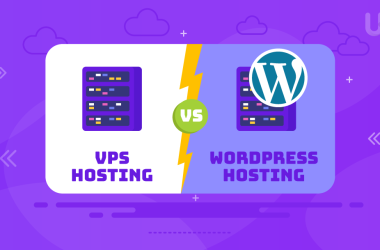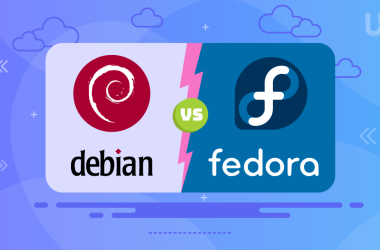
Have you thought about creating an online store? A personal blog, a professional website, or a site for your side business, maybe? If you do, there is this one important decision you have to make, and it has to do with choosing between E-commerce Hosting and Regular Hosting. It’s important to choose the right Web Hosting that works best for your online business since it can have a significant impact on your brand reputation and business operations.
Let’s define the most important differences between regular hosting and e-commerce hosting. After reading this guide, you will be able to make an informed decision, so continue reading!
Understanding the Basics
To begin, let us get the fundamentals right. The term Web Hosting can be defined as the space where data is stored for the website, and you can access it from anywhere in the world. It’s similar to the plot of land on which you build your online home or shop. To put it simply, web hosting services provide the necessary infrastructure and technological support to ensure that your website can be accessed via the Internet.
When a user types your website’s URL into their web browser, the device tries to connect to the web server that was designated to host your site. When the connection is successful, web server proceeds to respond by sending the requested web page back to the user’s device to facilitate the viewing of the content.
Regular Hosting
Regular Hosting, referred to as shared hosting, is akin to renting an apartment. Individuals (websites) residing within the same building or board share the same Physical resources (bandwidth, disk space, etc.) on that particular server (hosting plan). It’s cost-efficient and a great alternative for personal blogs or smaller websites that have lower traffic volume.
Key Features of Regular Hosting
Here are some of its key features:
- Cost-Effective: Regular hosting is one of the inexpensive types of hosting services offered. This is a tremendous way to go for people and small-scale businesses looking to have a digital footprint without spending a fortune. The low cost of shared hosting makes it a good option for slim-budget individuals.
- Ease of Use: Usually, the hosting is offered with modern and friendly control panels, like cPanel, custom interfaces, Plesk, and others. Users can control most undertakings of the account administration like setting up email accounts, application installs, managing files for the web pages, etc. For novices or people with no technical know-how, this is highly beneficial.
- Quick Setup: They usually provide a fast and easy setup. With the one-click installation feature for some of the popular content management systems (CMS), like WordPress sites, users can be able to get their websites working in a few minutes.
- Support: The users are often provided specific help for different technical issues and questions forwarded to the customer support service of the hosting provider. The support might differ from one provider to another, but it is common for many of them to provide customers with 24-hour customer support.
- Maintenance and Updates: Regular server maintenance, upgrades, and security measures are usually handled by the hosting providers for their clients. This enables users not to have to deal with the technical part of the server, so they can develop and manage their sites with ease.
Types of Websites Suited for Regular Hosting
Shared hosting is appropriate for many kinds of sites, such as:
- Personal Blogs: Shared hosting is very common among individuals who wish to express themselves and share their hobbies online because it is inexpensive and simple to maintain.
- Small Business Websites: Shared hosting is great for small businesses with low traffic and minimal resource use for them to gain online visibility.
- Informational Websites: Shared hosting is beneficial to not-for-profit organizations and community websites that mainly provide informative content.
- Portfolio Websites: Photographers and creative professionals can host their portfolio websites on shared hosting without any issues.
- Staging and Development Sites: Shared hosting is generally preferred by developers for staging or development sites until these sites can be moved to more advanced hosting solutions.
E-commerce Hosting
With E-commerce website hosting, it is similar to owning your own individual house. You do not have to share any resources with any of the other tenants, ensuring that your store performs at its best. This is especially important when dealing with hosted e-commerce websites that have a lot of visitors and require high security.
Key Features of E-commerce Hosting
From the name, it is obvious that e-commerce hosting is for online businesses. It has specific features designed to suit the needs of e-commerce sites:
- High-Performance Infrastructure: E-commerce hosting helps businesses that rely on e-commerce by providing server configurations with high performance such as SSDs and effective caching systems. These features are essential for fast loading speeds that aid in lowering bounce rates and increasing customer satisfaction, which is vital.
- Scalability: Online shops tend to have a surge of traffic during sales, promotions, or seasonal peaks, which sometimes tend to go beyond expectations. E-commerce hosting provides a number of scalability options to ensure that your website remains operational even during periods of high demand. These solutions are capable of dealing with rapid increases in traffic.
- Enhanced Security: The security of customers’ personal information is a top priority for e-commerce websites. E-commerce hosting includes a variety of strong security layers, including but not limited to an SSL certificate, DDoS (Distributed Denial of Service) protection, and regular security audits while also checking for compliance with Payment Card Industry Data Security Standard (PCI DSS) requirements. Such measures ensure their information and transactions are secure, and the vendors can legally protect themselves against information theft.
- E-commerce Features and Tools: For the most part, e-commerce hosting comes with already integrated e-commerce solutions such as WooCommerce, Magento, Shopify, and others. Such platforms come with specialized features for online businesses like inventory control, a product catalog, a shopping cart, payment gateways, and more. There are also integrations with other famous e-commerce plugins and extensions that make it easy and fast to establish an online shop. Besides, you can build incredible eCommerce apps quickly and affordably by incorporating ready-made & designed admin dashboards.
Types of Websites Suited for E-commerce Hosting
E-commerce hosting differs from other ways of hosting in that it is specifically catered towards online businesses or companies looking to host a website that will be directly selling products or services to customers through the internet. These are the kinds of websites that fit the description:
- Online Stores: This is the most obvious use case. If you are wondering how one would use e-commerce hosting, imagine an online store for businesses and products. It is not only possible to sell tangible products, but also digital products, making e-commerce hosting the best option.
- Dropshipping Websites: Dropshipping business websites allow customers to buy products without them having any interaction with the site. You are able to outsource and allow third-party suppliers to deliver the product directly to the consumer. This type of website can now be effortless with e-commerce hosting, where the complexities of supplier integration, order processing, and inventory tracking are managed smoothly.
- Subscription Services: Like streaming sites, sites providing online courses, or even video content require a subscription of some sort. These sites greatly benefit from having e-commerce hosting. Sub-management, payment, and content delivery must be smooth and e-commerce hosting provides these needs.
- Booking and Reservation Systems: Hotels, restaurants, and any event hosting places use the services of e-commerce hosting to manage reservations and other bookings as hospitality industry practitioners normally do. Unlike other types of hosting, this one can provide services like booking and checking availability in real-time.
Elevate Your Website to New Heights
We offer excellent website performance paired with relentless speed and security like never before. Experience the full benefits Ultahost brings and take advantage now of the E-Commerce Hosting services because your path to success begins here!
Performance Comparison
Any business hosting service must consider performance because it is still integral to user engagement with the website. Let us analyze the differences between e-commerce hosting and standard hosting offered side by side.
Consider the hosting as the motor for your website’s race vehicle.
Regular Hosting: Sharing resources is akin to sharing a racetrack with other cars. You will often find your vehicle stalled behind more sluggish vehicles during race traffic jams (which as we have already established, slows down your lap times, or loading speeds).
E-commerce hosting: Having e-commerce hosting is like having sole access to a racetrack; it does not matter how many cars there are, your race vehicle will always have an unobstructed path in front of it.
Factors to Consider Before Making a Decision
Now that we have all the essential information, let us focus on crucial aspects to help you choose what is best for your requirements.
1. Performance Matters
E-commerce hosting and standard hosting differ with regard to performance, which is one of the most crucial aspects that must be considered. Your choice can have a significant effect on how users experience your site and its loading times, which are critical factors for any website.
With ordinary hosting, load times can be slower due to the shared resources especially when your neighbors’ websites have traffic bottlenecks. If you own an eCommerce website, this delay can result in lost clients.
E-commerce hosting allows for the allocation of specific resources. This means your online store would not be affected by other websites, thus, your consumers enjoy a faster loading experience and a great purchasing experience.
2. Scalability
You can easily set up your own online store by using any of the legitimate Professional ecommerce templates and developing it. However, as your business starts growing, you’ll need to maximize your store’s potential before it can incur losses.
3. Security Concerns
Whenever it comes to a website, security should always be a top priority, and even more so for an e-commerce site dealing with sensitive customer information. A shared environment makes regular hosting more prone to breaches in security.
E-commerce hosting services usually come with stronger security features such as SSL certificates, DDoS Protection, firewalls, and other advanced security mechanisms. Besides, reputation and trust are improved as customer data and transactions are better protected.
4. Cost Considerations
Pricing is always a critical element when it comes to making decisions. As mentioned previously, regular hosting can be quite useful for people starting out online as it is more cost-effective. However, these limitations will eventually become more visible as your website grows.
While it may be true that e-commerce hosting is more expensive, it is a necessity if you want your business to be successful. The price of enterprise hosting is justifiable for e-commerce business owners because they tend to make more profit from improved performance and security.
5. Customer Support
Customer service can be helpful or damaging to your experience with web hosting. With regular hosting, customer service is usually standard and may suffice for small websites. In contrast, e-commerce hosting tends to have better service, like 24-hour assistance and expert help for any issues that may arise.
Making the Choice: Which Hosting is Right For You?
By now, you should have a good grasp of the differences between E-commerce Hosting and Regular Hosting. Your final decision will be based on your individual requirements:
- If you are starting out with a blog, a portfolio, or a small business and have a limited budget, then regular hosting might be the best deal for you.
- For those planning to run an online store, especially ones that expect high volume traffic and growth, investing in e-commerce hosting is definitely a worthwhile advance.
Always keep in mind that your web host is the cornerstone of your online presence. The choice you make can greatly affect your website’s performance, security, and scalability. For this reason, take some time to reflect on your needs and objectives before making a choice. How well your future online activities bear fruit might be determined by the choice you make today. Enjoy hosting!
If you’re ready to take your business to the next level and even delve deeper into hosting options, then make sure you discover Ultahost’s services. Check out possibilities of advanced professional services and expand your business. Your success story starts now!
FAQ’s
It’s crucial to keep in mind that while some Regular Hosting providers may offer 24/7 help, the scope and caliber of that support may not be as extensive as what is normally provided with E-commerce Hosting. E-commerce hosting frequently includes first-rate customer care, such as round-the-clock accessibility to help you with any technical concerns, ensuring that your online firm is always open for business.
Yes, Regular Hosting is a good choice for small companies, individual blogs, portfolio websites, and any other website with a modest amount of traffic and a restricted advertising budget. It’s a great option for new users and those who want to create a basic web presence without the need for specialized tools or sophisticated features.
The primary difference between E-commerce Hosting and Regular Hosting lies in resource allocation. With dedicated resources offered by e-commerce hosting, your website has exclusive access to the server’s processing power, RAM, disk space, and bandwidth. Regular hosting, also known as shared hosting, on the other hand, entails sharing these resources with other websites on the same server. Due to the shared environment and the fact that the server’s resources are shared among several websites, performance can vary, especially during periods of high traffic.
E-commerce hosting is best for websites that conduct online transactions, such as e-commerce retailers, and websites with large traffic. Additionally, this hosting option is ideal for companies with long-term expansion plans. E-commerce Hosting is the best option if you expect a significant rise in website traffic or want to develop your online store.
E-commerce To safeguard sensitive client data and guarantee secure transactions, hosting often involves cutting-edge security measures. These precautions frequently include SSL certificates, powerful firewalls, DDoS defense, and recurring security assessments. Maintaining the trust of your consumers and protecting their financial and personal information depends on robust security.









